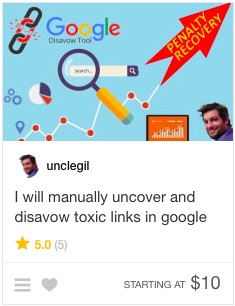Many professionals and business owners know they absolutely need SEO to grow their business but they don’t necessarily know what it actually is and what services it includes. SEO stands for search engine optimization, and in other words website optimization. The reason for optimizing a website is that users who search for a product or a service within a search engine such as Google will find the most relevant results for the specific keyword they have searched.
How do you optimize a website?
There are several ways to optimize a website, including building a mobile responsive website, conducting keyword research, writing relevant, high-quality content that will give users added value, improving the website’s loading speed, internal linking structure and so much more.
Step 1: Audit your website
The first step to optimizing your website is having an SEO professional review your website to make sure it follows Google’s recommendations, as well as provide a user-friendly experience. The SEO expert will audit your website and write a report that includes recommendations on different key SEO ranking factors of the site, such as broken links, XML sitemap, page speed, duplicate content, navigation and more. Choose your SEO audit expert and take the first step to a professional, optimized website:
Find more SEO audit Gigs! >
Step 2: Optimize your website’s technical SEO details
Now that you have a full SEO report of your site, you know what the issues are and what needs to be optimized. A technical SEO expert will be able to clean your code, organize your URL hierarchy, create a robots.txt file, or XML sitemap and more. This is hard work and it takes a professional who knows their way around the small, technical details. We found some of the best technical SEO experts, just for you:

Find more technical SEO Gigs! >
Step 3: Conduct a thorough keyword research
Once the technical aspect of your site is taken care of and all issues have been fixed, you can take care of your site’s SEO strategy and goals. This is the time to consider several things: What is the main niche market of your website? Who is your target audience? It’s important to keep in mind that your first keyword research should focus on keywords that have high search volume and low competition. If your website is new, you should first focus on low competitive long-tail keywords in order to increase your chances to quickly rank high on search engines’ SERPs. Pick your keyword research expert:

Find more keyword research Gigs! >
Step 4: Optimize URLS, tags & titles
Your keyword research done, it’s time to speak about your on-page optimization key points such as titles and Meta descriptions, headings (H1, H2, H3..), ALT tags, Schema markup and more. Your website’s URL structure, page titles and Meta tags should be kept short and to the point, as they are among the main factors that will determine your organic ranking. Maximizing the potential of these key areas of on-page SEO is crucial and requires expertise, which is where our SEO experts come in:

Find more on-page optimization Gigs! >
Step 5: Create high-quality SEO content
A successful content strategy should incorporate SEO, and keyword research is only a part of it. Your niche market, target audience, and keyword research are the foundation of your content strategy. It’s important to keep in mind that your content should be valuable and of high quality; otherwise, users won’t stay on the pages. Short user visits will send a negative SEO signal to search engines, decreasing your chances of ranking high and gaining authority backlinks. Ready to get started? Hire your professional SEO writer:

Find more SEO content Gigs! >
Step 6: Promote your website
What is authoritative guest posting?
Guest posting is a part of content marketing, and although Google has warned users from “abusive” guest posting aimed to gain unnatural backlinks, “authoritative” guest posting (if done right) is one of the most effective strategies to promote your business online and build relevant and authoritative backlinks.
How to approach guest posting?
Before creating guest posts, you should find high-quality websites or blogs within your niche market that accept guest posts. Similar to the content on your website, your guest posts should be written with the users in mind, and be informative and useful to them.
What to avoid when guest posting?
Professional guest posts should not include keyword stuffing nor exact keywords as the anchor text for your links. A major component in positive guest posts is the number of posts. Google detects if a site has too many unnatural guest posts. Instead, aim for rich, deep and authoritative content which will not only help you get authoritative backlinks but social shares, mentions and likes as well.
Check out our guest post professionals and select the best one for you:

Find more high-quality guest posts Gigs! >
The post SEO 101 – A Step-by-Step Gig Guide to Promoting Your Website appeared first on .













